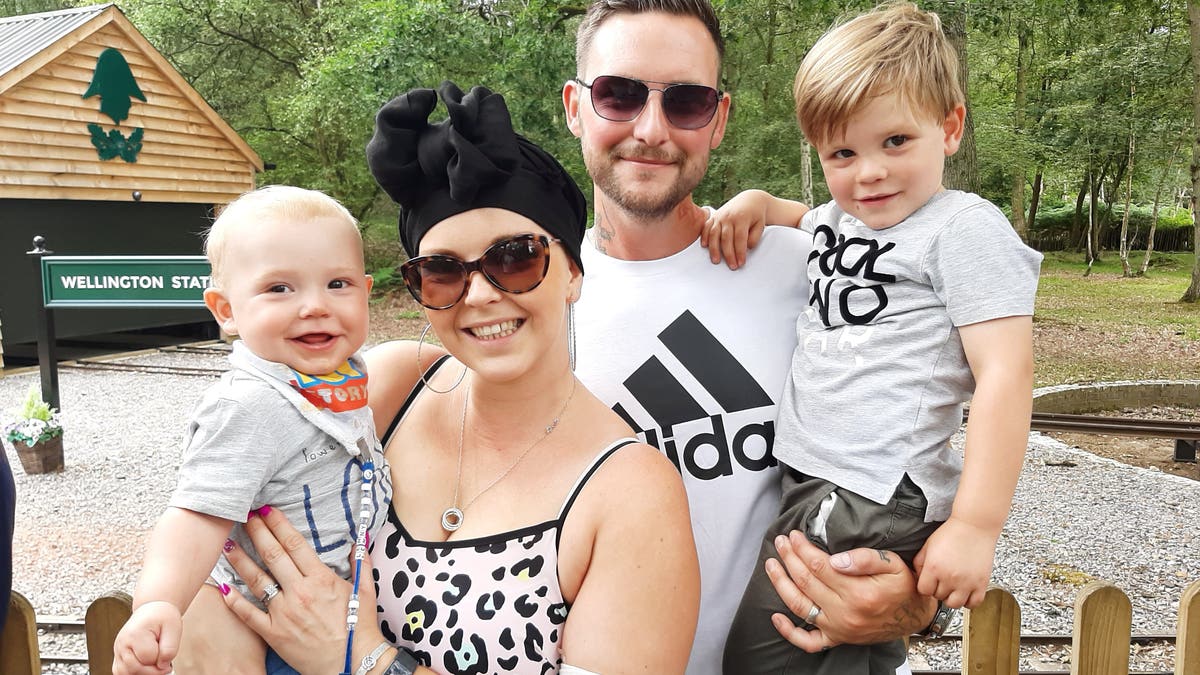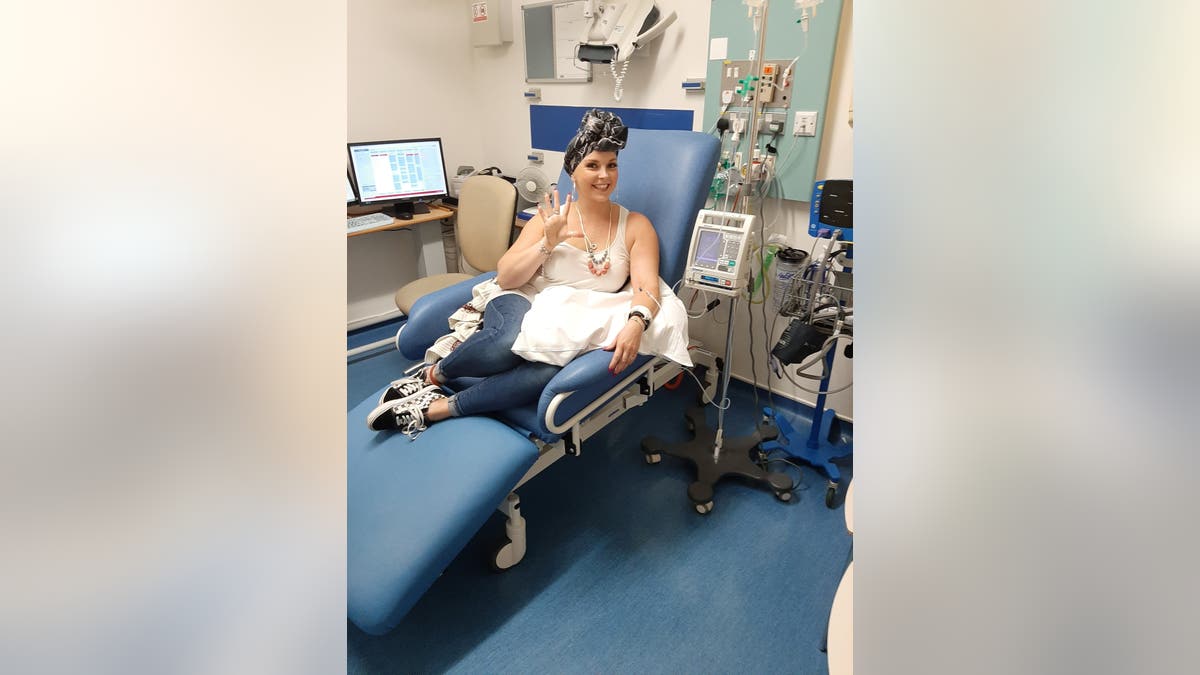Fox News Flash top headlines for Dec. 18
Fox News Flash top headlines for Dec. 18 are here. Check out what's clicking on Foxnews.com
A mom in the U.K. who discovered a cancerous lump while breastfeeding her son said she is determined to live life to the fullest while undergoing treatment for breast cancer.
Amy Palmer, 30, claims her concerns about the lump were dismissed as a blocked milk duct, but when tests revealed cancer she and her husband were devastated.
BOY, 9, NOW CANCER-FREE, BREAKS DOWN AFTER TAKING LAST CHEMO PILL
“It was just a shock, just a complete shock,” Palmer, of Devon, England, told South West News Service (SWNS), a British news agency. “You never think anything like this is going to happen to you until it does. It hit my husband really hard.”

Amy Palmer pictured with her husband Colin and two young children Lenny, now one, and Frankie, 4, first discovered the lump while breastfeeding her son. (SWNS)
The mom of two, who had completed a half-marathon just days before discovering the lump, has since had six rounds of chemotherapy, a lumpectomy and 18 rounds of radiation, and is now completing a bucket list to ensure that she doesn’t take life for granted. Among the list of things she’d like to do is plan a trip to New York, and enter the London Marathon.
IDAHO SCHOOL'S MOLDY BREAD HANDWASHING EXPERIMENT GOES VIRAL AFTER 'DISGUSTING' RESULTS
She is also urging others to get screened early and often for breast cancer, considering she was just 30 when she was diagnosed.
“I’d like to see anyone over the age of 18 offered screenings,” she told SWNS. “Since my diagnosis, I’ve seen women in their 20s diagnosed with breast cancer. Screening early could only save lives.”

Palmer, who is still undergoing treatment, is now urging others to be vigilant about their health regardless of their age. (SWNS)
In the U.K., about 1 in 8 women are diagnosed with breast cancer during their lifetime, but routine screening doesn’t begin until age 50. In the U.S., it is recommended that women age 45 to 54 get mammograms each year, with frequency switching to every two years after age 55, according to the American Cancer Society.
CLICK HERE TO GET THE FOX NEWS APP
The reason for the recommendations is because age is a risk factor for breast cancer of which patients have no control. Most breast cancer diagnoses are made after age 50, according to the Centers for Disease Control and Prevention (CDC). However, those with certain genetic mutations such as the BRCA1 and BRCA2 mutations are at an increased risk of developing breast and ovarian cancer, which means the screening recommendations are altered for this group.









































